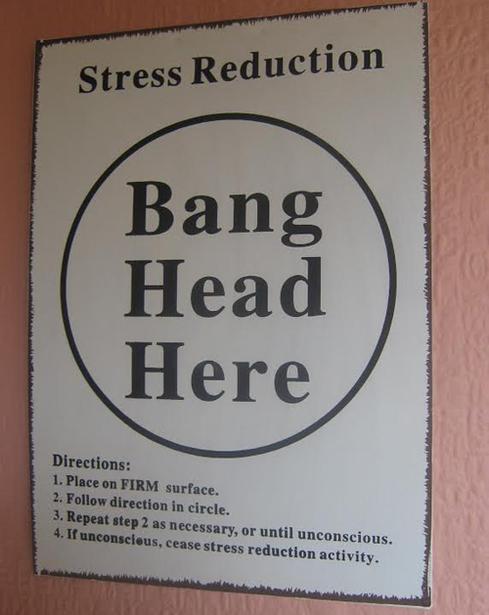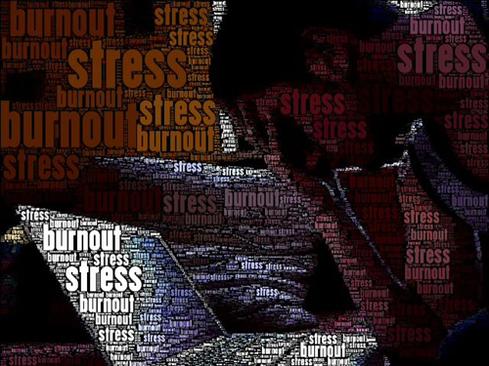Reclaim Your Schedule In 2015: 7 Tips
Were you overworked, overtaxed, or simply "over busy" in 2014? Take control of your schedule and reduce stress in 2015.


10 Ways To Improve Your Personal Brand
10 Ways To Improve Your Personal Brand (Click image for larger view and slideshow.)
Ask 100 random professionals, "How's it going?" and you'll hear a common refrain: "Busy." Or, perhaps some variation of same: "So busy. Really busy. Very busy. Super busy. Insanely busy." Busy, busy, busy:
That's the norm for IT pros and just about every other line of business these days, in just about every industry. The problem with "busy" is that the word itself offers no qualitative value. Busy can be a great thing: plenty of customers, hard work, and high-quality results. But it can just as easily become synonymous with "inefficient," "ineffective," "unreliable," and plain-old "unhealthy" -- for individuals and organizations alike.
A tell-tale sign of the latter: Calendars that fill up like an advanced Tetris grid. With people increasingly asked to take on additional responsibilities and "wear multiple hats," in the parlance of corporate America, work schedules quickly resemble existential crises more than productive roadmaps. And IT pros, especially, know that modern devices and applications turn phrases such as "close of business," "end of day," and "work-life balance" into the deflating punch-lines of jokes you've heard way too many times. If this sounds like you and your job, it's time to do something about it. A new year is around the corner.
[Have your heart set on a 3D printer? Read 3D Printers: Why Nobody Needs One For Christmas.]
If you've been "bad busy" in 2014, now's as good a time as any make changes. InformationWeek asked a range of businesspeople -- IT professionals, career and organizational experts, and others -- for their advice on working smarter in 2015. Here's their advice on building better schedules for greater productivity, efficiency, and health.
1. Channel Sun Tzu.
Fred Kirwin, business intelligence analyst at Eliassen Group, oversees the tech recruitment firm's data warehouse and database development. As a result, he doesn't often get to turn off his various devices, so advice to that effect doesn't help him. Instead, Kirwin found a different approach to keeping a sane, productive schedule. "The best way to do so is to get your boss to allow you to focus on two or three specific tasks for a period of time," Kirwin said. "That way, you can work in a somewhat linear fashion, while also having the ability to put out the inevitable problems that can occur when you are working for a relatively large enterprise. Sun Tzu said it best in this regard: 'In trying to defend everything he defended nothing.'"
Figure 1:  Image: Eamon Curry(Flickr)
Image: Eamon Curry(Flickr)
2. Run mini-sprints.
Developers and similar IT professionals who must work on new projects while simultaneously supporting existing systems know the tug-of-war that often occurs between the two -- a conflict that sometimes pushes people from busy to burn-out. "My developers and I are guilty [of] getting distracted by drive-bys and random user requests for assistance," says Kelly Bedrich, director of IT at American Quality & Productivity Center (AQPC). "When we need focused development time, we've been reserving a dedicated block of time on our calendars and finding a nice out-of-the-way conference room." The ground rules: No email, phones, or instant messaging. "Just work on one specific problem and accomplish a task you identified before you started." Bedrich says.
3. Make status indicators meaningful.
AQPC uses Skype for messaging. No matter what communication tools your organization or team uses, Bedrich offers this advice: "Make it a cultural norm to use the Away or Do Not Disturb settings." You can use status indicators
offline, too: AQPC's IT team follows "the headphone rule," for instance: "We try not to interrupt each other if we're using our headphones and are working on something that needs our focused attention."
4. Turn your to-do list into a competition.
Angelo Kinicki, a professor at W. P. Carey School of Business at Arizona State University, says that professionals drowning in their to-do lists must get rid of unimportant, unnecessary tasks in order to regain control of their daily schedules. How to cull the herd? Simple: Create competition. "You can do this by making a list of all your work projects or key milestones, and then rank them from most to least important," Kinicki says, adding that overworked professionals must also prioritize personal time with the important people in their lives. "Try to eliminate some of the lower-ranked items."
5. Manage tasks, not time.
If you've ever been frustrated by an organization where people seem only to measure their work by the number of hours they spent in the office -- rather than what they actually accomplished during those hours -- take note. According to career coach and leadership consultant Melanie Klinghoffer, too many people try to conform to the theory of "time management" when it doesn't suit their personality and working style, leading to disappointment and burnout. She recommends managing tasks instead of time: "The sense of completion after completing tasks motivates [people] and increases energy levels, which in effect allows them to reclaim their schedules," Klinghoffer says. She also recommends taking brief breaks when working on specific tasks or projects, even if the "break" involves knocking out a smaller, non-digital task like dropping something in the mail simply by taking a brief walk. "Short breaks are especially helpful to IT professionals who need to break away from electronic devices and other machines," Klinghoffer says.
Figure 2:  Image: Florian Simeth (Flickr)
Image: Florian Simeth (Flickr)
6. Try single-tasking.
Count Mazin Abou-Seido, director of IT at Halogen Software, among the believers of a task-focused approach to work. Just don't fall into the multi-tasking sinkhole. "Don't be fooled into thinking multitasking is a valuable skill," Abou-Seido says. "Try single-tasking. It's a great skill to have and can actually help increase your productivity. Focus on doing one task at a time. Once you've completed it, move on to the next."
7. Leave for lunch.
The fictional corporate raider Gordon Gekko once said: "Lunch is for wimps." But Gekko went to prison for insider trading, so perhaps he's not the best source of career advice. Want to stake out some space in your schedule while avoiding the afternoon doldrums that plague offices everywhere? Make a point of going to lunch. "One of the most important things I've done for myself as of late is take a true lunch each day," says Michael Fienman, an attorney who runs his own firm, Fienman Defense. "I leave my desk, walk around for a bit, and stretch my legs. I come back feeling refreshed, rejuvenated, and focused. The afternoon lull is a very, very real thing."
Get the latest information to migrate your systems, services, and applications to the next level at Enterprise Connect. Cisco, Microsoft, Avaya, and Oracle will lead the keynote lineup, and thought leaders from enterprises and vendors will cover the full range of platforms, services, and applications that will simplify your migration to next-gen communications and collaboration systems. Register for Enterprise Connect with code DIWKAXE to save $100 off the early-bird rate. It happens in Orlando, Fla., March 16 to 19.
About the Author
You May Also Like






